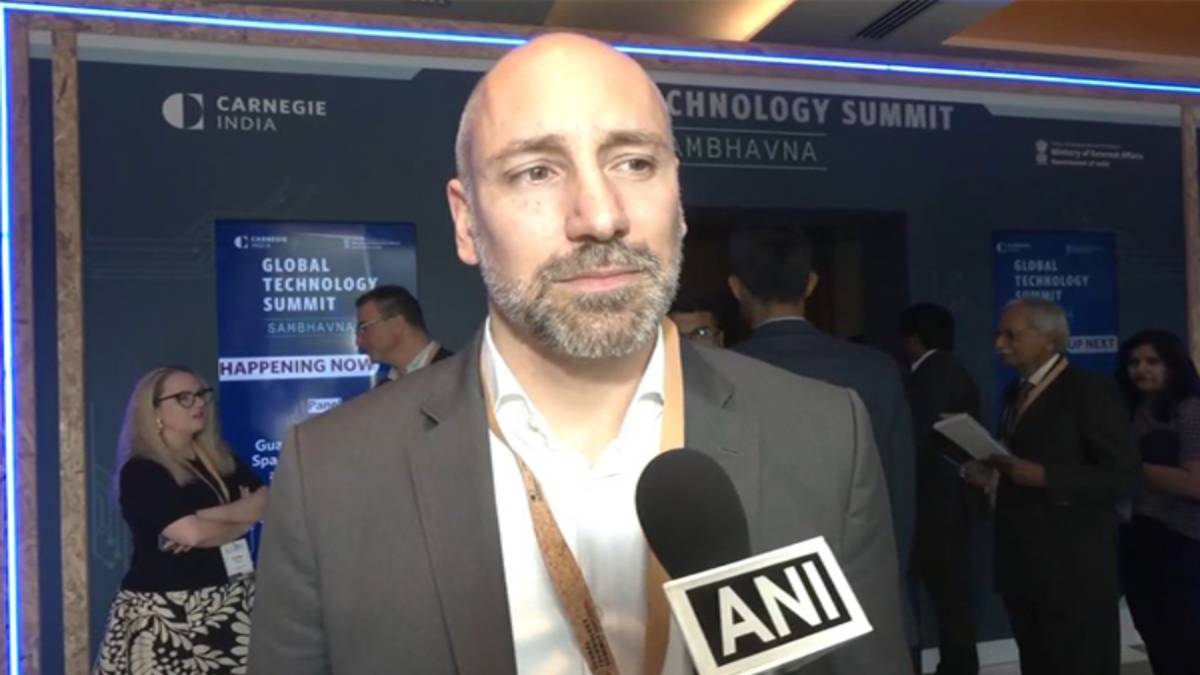Evan A. Feigenbaum, Vice President for Studies at the Carnegie Endowment for International Peace, has stated that mounting pressure from financial markets is pushing the U.S. administration to reconsider its current trade policies, particularly in light of escalating tensions with China. Speaking to ANI during the Carnegie Global Technology Summit, Feigenbaum warned that the tariff war could have dire consequences not just for the U.S. and China, but for the global economy.
“There’s a lot of pressure from the markets on the administration to change course,” Feigenbaum said. “You can’t be completely oblivious to the erosion in faith and confidence in American economic leadership. Assets traditionally considered safe, such as U.S. bonds and the dollar, are now being treated as if they’re risky.”
Feigenbaum cautioned that the continued tariff war could be catastrophic: the U.S. could face supply shortages and inflation, while China’s already struggling export sector may face added strain, potentially leading to deflation. The broader global impact, he emphasized, will include widespread disruption to supply chains and long-term investment uncertainty.
“For the rest of the world, especially businesses trying to plan long-term, this level of unpredictability makes it nearly impossible to forecast tariff environments,” he noted. “We’re heading for a freeze in supply chains and stagnation in investment decisions.”
Feigenbaum also stressed that India, while not directly embroiled in the trade war, is not immune to its consequences. He recommended that India focus on diversifying its supply chains to mitigate risk. “India needs a broad array of partners in every direction. Diversification is a smart and strategic path forward.”
Supporting this view, Bjorn Conrad, CEO of Sinolytics and a China expert, said China has been preparing for such a scenario and is equipped with both the tools and the strategy to respond forcefully.
“China hasn’t been blindsided,” Conrad said. “They’ve long prepared for this and have powerful cards to play — from targeting U.S. companies to restricting exports of critical raw materials like heavy rare earth elements, semiconductors, and high-tech components.”
According to Conrad, while the U.S. has started mining rare earths domestically, the process is slow and limited in capacity. He also highlighted India’s growing concern over the potential dumping of Chinese goods and the diversion of trade flows, urging the country to remain vigilant against market disruptions.
Rosa Balfour, Director of Carnegie Europe, reiterated the EU’s proactive approach in light of rising trade tensions. “The EU has been preparing its own response toolbox for several months,” she said. “With uncertainty surrounding U.S. policy, European countries are seeking alternative markets and accelerating trade talks with partners like India, Malaysia, the Philippines, and the UAE.”
Balfour emphasized that while the U.S. direction remains unclear, other nations are mobilizing quickly to reduce their vulnerability and maintain economic stability.
With the U.S.-China tariff war escalating and its ripple effects being felt across global markets, experts agree that governments and corporations alike must brace for prolonged uncertainty — and plan strategically for a rapidly shifting economic landscape.





